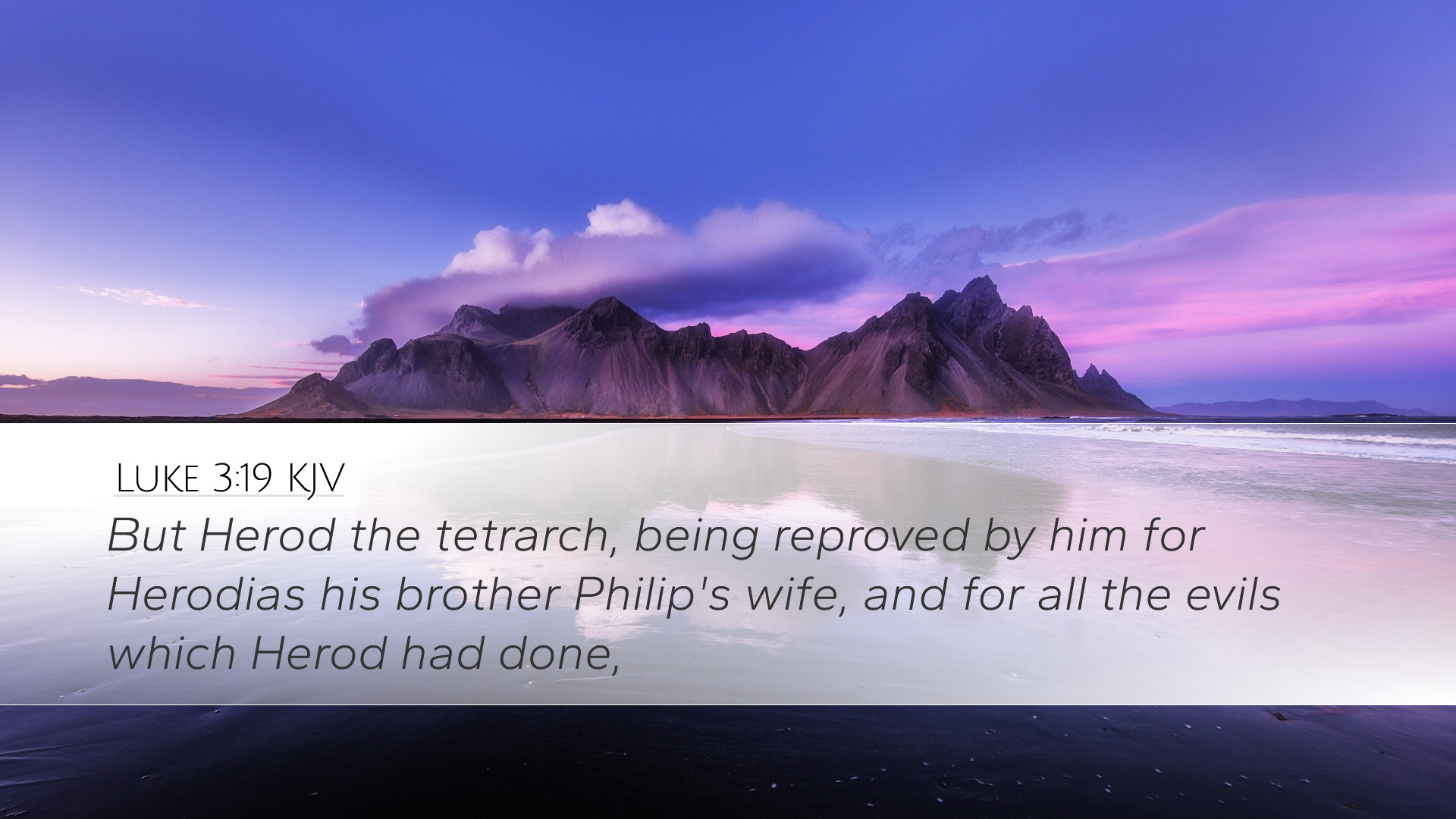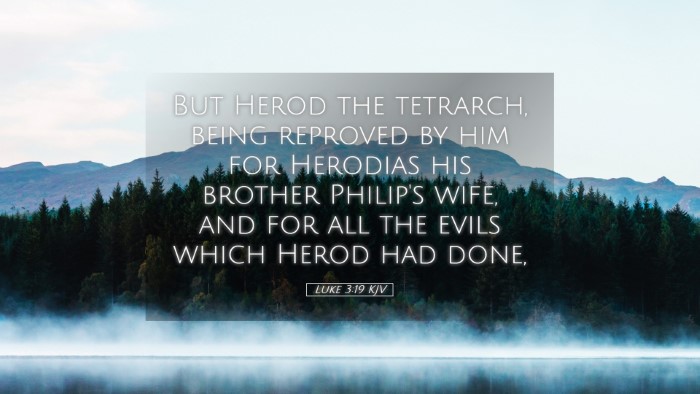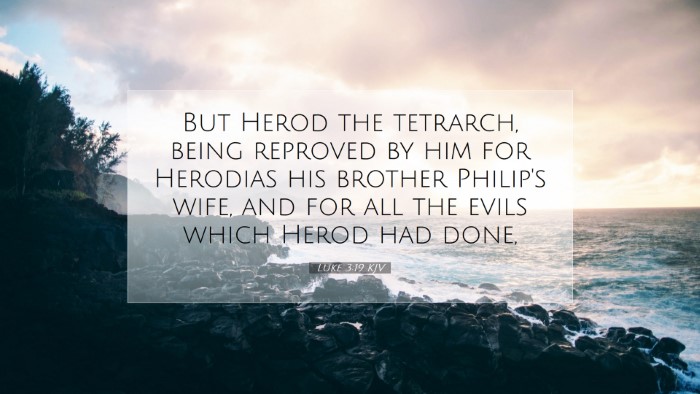Commentary on Luke 3:19
Verse Context: Luke 3:19 states, "But Herod the tetrarch, being rebuked by him for Herodias his brother Philip’s wife, and for all the evils which Herod had done," (KJV). This verse serves as a pivotal moment in the ministry of John the Baptist and reveals the moral and political challenges faced during his prophetic career.
Insights from Matthew Henry
Matthew Henry emphasizes the boldness of John the Baptist in addressing the moral failings of Herod Antipas. He notes that John did not shy away from confronting power, which is a crucial aspect of prophetic ministry. Henry points out that Herod's marriage to Herodias, his brother's wife, was not only politically scandalous but also morally reprehensible. John’s rebuke illustrates the Biblical principle that righteousness must be upheld, regardless of the status of those who sin. He warns of a perilous mixing of personal sin and public influence.
Key Takeaway: The courage to confront sin, especially in high places, is a defining feature of true prophetic voices.
Insights from Albert Barnes
Albert Barnes provides a deeper analysis of the sociopolitical implications surrounding Herod’s reign. He elucidates that Herod's actions, particularly in marrying Herodias, were not just personal choices but also significant cultural statements. Barnes suggests that John's ministry prompted Herod to recognize the moral decay that prevailed despite his political power. He explains that this passage shows the conflict between divine truth and human authority, stressing that those in power are often the most vulnerable to moral failure.
Key Takeaway: The conflict between divine authority and human governance is highlighted, showcasing the consequences of moral corruption in leadership.
Insights from Adam Clarke
Adam Clarke's commentary extends the analysis by discussing the historical context of the relationship between John the Baptist and Herod. Clarke notes that John’s imprisonment came as a direct consequence of his rebuke to Herod concerning Herodias. He highlights that Herod's fear and insecurity led to silencing the voice of righteousness. Furthermore, Clarke touches upon the concept of reproof and its significance in the life of a believer, where speaking truth to power is not just a calling—it’s an obligation of faith.
Key Takeaway: Speaking truthfully against immorality is integral to the Christian faith, and believers are to take up this mantle despite the potential for personal consequences.
Lessons for Pastors and Theologians
The combined insights from these commentators present key lessons for modern pastors and theologians:
- The Role of Confrontation: Pastoral care involves truth-telling, especially when it comes to issues of moral failing in leadership. Like John, pastors are called to convey God’s standards boldly.
- Moral Integrity in Leadership: The need for integrity in Christian leadership is underscored. Just as Herod was rebuked, church leaders must hold themselves and others accountable to God’s standards.
- Faithfulness Despite Consequences: Pastoral ministry may lead individuals to uncomfortable or risky situations. Faithfulness to God’s calling may require standing alone against powerful figures.
- Awareness of the Cultural Context: Understanding the cultural and historical backdrop against which biblical events unfolded can illuminate contemporary applications for ministry.
Conclusion
Luke 3:19 provides profound insights into the nature of prophetic ministry, the dynamics of power and morality, and the responsibilities of God’s people. Reflecting on the combined commentaries of Matthew Henry, Albert Barnes, and Adam Clarke enriches our understanding of this pivotal moment in scripture. It challenges pastors, students, scholars, and believers to embody the courage of John the Baptist, standing firm in truth and righteousness in an age where moral clarity is often obscured.


